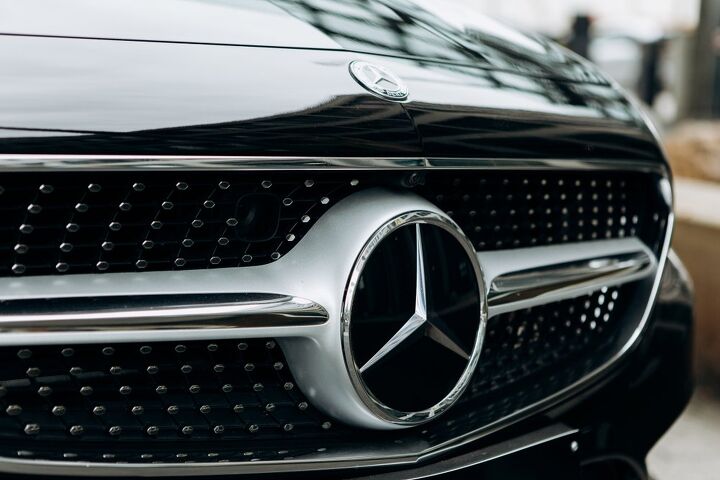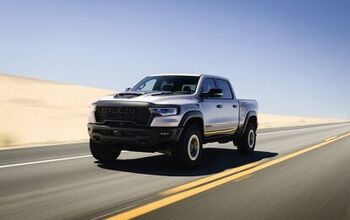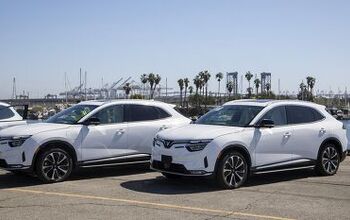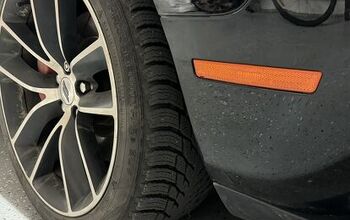Judge Approves Daimler AG's $1.5 Billion Diesel Emissions Settlement

On Tuesday, a federal judge approved a $1.5 billion settlement to pump the brakes on an investigation conducted by the U.S. government pursuing claims that Daimler used illicit software that allowed excess diesel emissions on 250,000 units. This runs in tandem with another $700 million settlement the automaker is making with vehicle owners, which is likely to see final approval in a few months, and an extensive recall campaign.
The federal case involves the U.S. Justice Department, the California Air Resources Board, and follows a trend of fines for automakers accused of misleading regulators so that diesel vehicles could continue being sold. This kicked off with Volkswagen’s Dieselgate in 2015, with numerous government probes taking place in Europe and North America over the next five years. Many automakers have since been discouraged from relying on diesel powertrains due to rising regulatory actions. European countries that once championed the fuel as ecologically preferable to gasoline, after the advent of biodiesels, are now obsessed with tamping down NOx emissions and getting more electric vehicles onto the road.
Daimler’s U.S. settlement was announced in September after being under review for years. According to Reuters, court documents stipulate that the automaker is being issued an $875 million civil penalty levied under the Clean Air Act, $70 million in additional penalties, and $546 million to sort out vehicles that didn’t pass emissions or to help “offset” excess emissions.
From Reuters:
U.S. District Judge Emmet G. Sullivan called the California settlement fair, reasonable and in the public interest, and noted settlement talks lasted for more than three years.
As part of the settlement, Daimler will pay California $285.6 million.
The German company has separately agreed to a $700 million settlement with diesel vehicle owners. That settlement has won preliminary approval and is likely to get final approval this summer, said Steve Berman, a lawyer for the owners.
It also had to spend over an additional billion dollars in its home country to appease German regulators in 2019. Meanwhile, the American settlement represents the “second-largest civil penalty in the history of the Clean Air Act” when it was first announced, according to then-EPA head Andrew Wheeler. Volkswagen still remains the largest.
A Daimler spokesperson said that the settlement ruling allows the company to take the necessary steps toward “legal certainty in connection with various diesel proceedings” and issued a reminder that it had cooperated with U.S. regulators. Final approval is expected this summer.
[Image: Franz12/Shutterstock]

A staunch consumer advocate tracking industry trends and regulation. Before joining TTAC, Matt spent a decade working for marketing and research firms based in NYC. Clients included several of the world’s largest automakers, global tire brands, and aftermarket part suppliers. Dissatisfied with the corporate world and resentful of having to wear suits everyday, he pivoted to writing about cars. Since then, that man has become an ardent supporter of the right-to-repair movement, been interviewed on the auto industry by national radio broadcasts, driven more rental cars than anyone ever should, participated in amateur rallying events, and received the requisite minimum training as sanctioned by the SCCA. Handy with a wrench, Matt grew up surrounded by Detroit auto workers and managed to get a pizza delivery job before he was legally eligible. He later found himself driving box trucks through Manhattan, guaranteeing future sympathy for actual truckers. He continues to conduct research pertaining to the automotive sector as an independent contractor and has since moved back to his native Michigan, closer to where the cars are born. A contrarian, Matt claims to prefer understeer — stating that front and all-wheel drive vehicles cater best to his driving style.
More by Matt Posky
Latest Car Reviews
Read moreLatest Product Reviews
Read moreRecent Comments
- Rochester If I could actually afford an Aston Martin, I would absolutely consider living in an Aston themed condo.
- Redapple2 I ve slept on it. I would take one on a 3 yr lease for $199/mo- ($1000 down total). Evil gm Vampire gave me this deal in 2012.
- 3SpeedAutomatic Would prefer a non-turbo with a stick shift. That would be more fun to drive!!🚗🚗🚗Also, I could teach my nieces and nephews to drive a standard. You'd be surprised how many folks can't handle a stick shift today. Yet, in Europe, most rental cars come with a stick unless you specify otherwise.
- Jeffrey Henry Ford said about innovation, “ If I had asked my customers what they wanted, then they would have said a faster horse." Change is inevitable!!!https://www.wri.org/insights/countries-adopting-electric-vehicles-fastest#:~:text=Currently%2C%2016%20countries%2C%20including%20Canada,create%20and%20enforce%20such%20policies.
- ToolGuy If these guys opened a hotel outside Cincinnati I would go there to sleep, and to dream.


































Comments
Join the conversation
I love my Diesel fleet. Take that, eco terrorists.
Considering how hard it is to find a used diesel gle250 or touareg tdi , alot of people do too. I'm not worried about diesels being outlawed where I live . Every other full size truck is a diesel